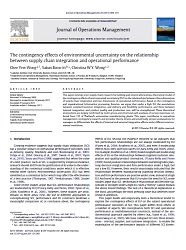نشست رسوبات بادی روی سلول های خورشیدی فتوولتائیک: اثرات سرعت باد و شدت غبار هوابرد بر عملکرد سلول
Aeolian dust deposition on photovoltaic solar cells: the effects of wind velocity and airborne dust concentration on cell performance
تاریخ: ۱۹۹۹
پایگاه: الزویر
![]()
نام مجله: Solar Energy
قیمت: ۱۰۰,۰۰۰ ریال
تعداد صفحات انگلیسی: ۱۳
تعداد صفحات فارسی: ۲۲
کد: ۳۰۳۲۸
چکیده فارسی
آزمایشهای تونل باد به منظور تحقیق در زمینه تاثیر سرعت باد و شدت غبار هوابرد بر افت عملکرد سلول فتوولتائیک (PV) به سبب انباشت غبار بر چنین سلولهایی انجام شده است. افت عملکرد در چهار سرعت باد و چهار شدت غبار مورد بررسی قرار گرفت. مشخصههای I-V برای شدتهای مختلف آلودگی سلول تعیین شدند. تغییرات جریان اتصال کوتاه، ولتاژ مدار باز، توان بیشینه، کاهش شدت نور آفتاب دریافتی توسط سلول، و تغییرات ضریب پوششی (fill factor) با افزایش آلودگی سلول مورد آزمایش قرار گرفت. نشست (و انباشت) ریزغبارها روی سلولهای PV به طور قابل توجهی بر عملکرد چنین سلولهایی تاثیر میگذارد. سرعت باد تاثیر مهمی بر افت عملکرد سلول دارد، زیرا این افت در بادهای تند بیشتر از بادهای کند هستند. با این حال، باد بر ساختار رسوب شناختی پوشش غبار بر سلول نیز تاثیر میگذارد و سبب انتقال (نور) بیشتری برای پوشش ایجاد شده در جریان بادهای تند میشود. آزمایشهای تونل باد نشانگر این است که اثر مورد اول مهمتر از اثر مورد دوم میباشد، که به طور کلی بدین معناست که افت در سلول فتوولتائیک به خاطر انباشت غبار با افزایش سرعت باد بیشتر میباشد. شدت غبار هوایی بر افت عملکرد سلول فتوولتائیک نیز تاثیر میگذارد، زیرا شدت بالای غبار سبب انباشت بیشتر روی سلول میشود. بر خلاف سرعت باد، به نظر نمیرسد شدت غبار هوایی (از جهت انتقال نور) بر ساختار رسوب شناختی پوششهای غبار روی سلولهای فتوولتائیک تاثیر بگذارد.
چکیده انگلیسی
Wind tunnel experiments were conducted to investigate the effect of wind velocity and airborne dust concentration on the drop of photovoltaic (PV) cell performance caused by dust accumulation on such cells. Performance drop was investigated at four wind velocities and four dust concentrations. I–V characteristics were determined for various intensities of cell pollution. The evolutions of the short circuit current, the open circuit voltage, the maximum power, the reduction of solar intensity received by the cells, and the fill factor variation with increasing cell pollution were examined. The deposition (and accumulation) of fine aeolian dust on PV cells significantly affects the performance of such cells. Wind velocity has an important impact on cell performance drop, since the drop is larger in high winds than in low winds. However, the wind also affects the sedimentological structure of the dust coating on the cell, resulting in a higher transmittance (of light) for coatings created during high winds. The wind tunnel experiments indicate that the former effect is more important than the latter, which means that, in general, the drop in PV cell performance due to dust accumulation is larger as wind speed increases. Airborne dust concentration also affects the drop in PV cell performance, since high dust concentrations lead to a higher accumulation on the cell. Contrary to wind speed, airborne dust concentration does not seem to affect the sedimentological structure of dust coatings (with respect to light transmittance) on PV cells
مشخصات استنادی
Goossens, D., & Van Kerschaever, E. (1999). Aeolian dust deposition on photovoltaic solar cells: the effects of wind velocity and airborne dust concentration on cell performance. Solar Energy, 66(4), 277-289
دانلود اصل مقاله
 ویژگیهای مقاله نشست رسوبات بادی روی سلول های خورشیدی فتوولتائیک: اثرات سرعت باد و شدت غبار هوابرد بر عملکرد سلول
ویژگیهای مقاله نشست رسوبات بادی روی سلول های خورشیدی فتوولتائیک: اثرات سرعت باد و شدت غبار هوابرد بر عملکرد سلول
مقاله “نشست رسوبات بادی روی سلول های خورشیدی فتوولتائیک: اثرات سرعت باد و شدت غبار هوابرد بر عملکرد سلول” در سال ۱۹۹۹ در مجله Solar Energy چاپ شده و در پایگاه اطلاعاتی الزویر نمایه شده است. این مقاله به بررسی آزمایش تونل باد، سلول فتوولتائیک (PV) و افت عملکرد سلول فتوولتائیک پرداخته است. همچنین براساس اطلاعات پایگاه اطلاعاتی گوگل اسکولار این مقاله ۷۳ بار مورد استناد قرار گرفته است.









دیدگاه خود را ثبت کنید
تمایل دارید در گفتگوها شرکت کنید؟در گفتگو ها شرکت کنید.